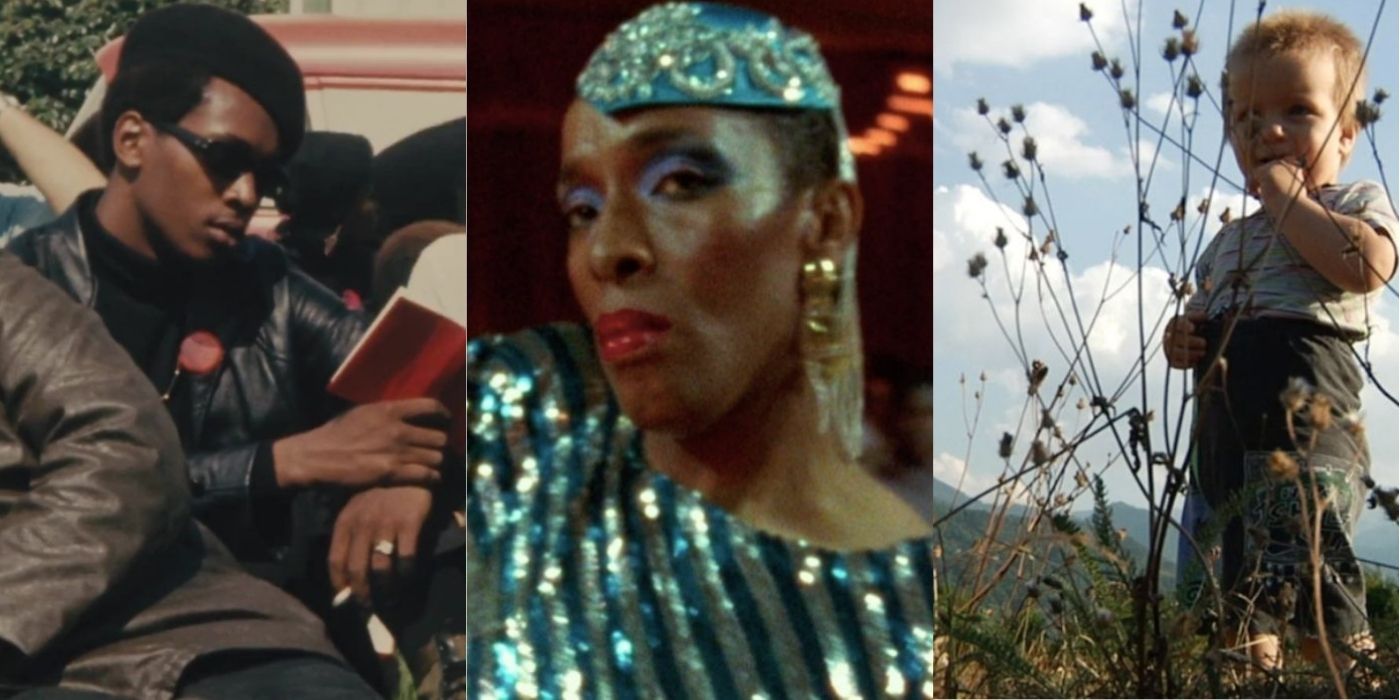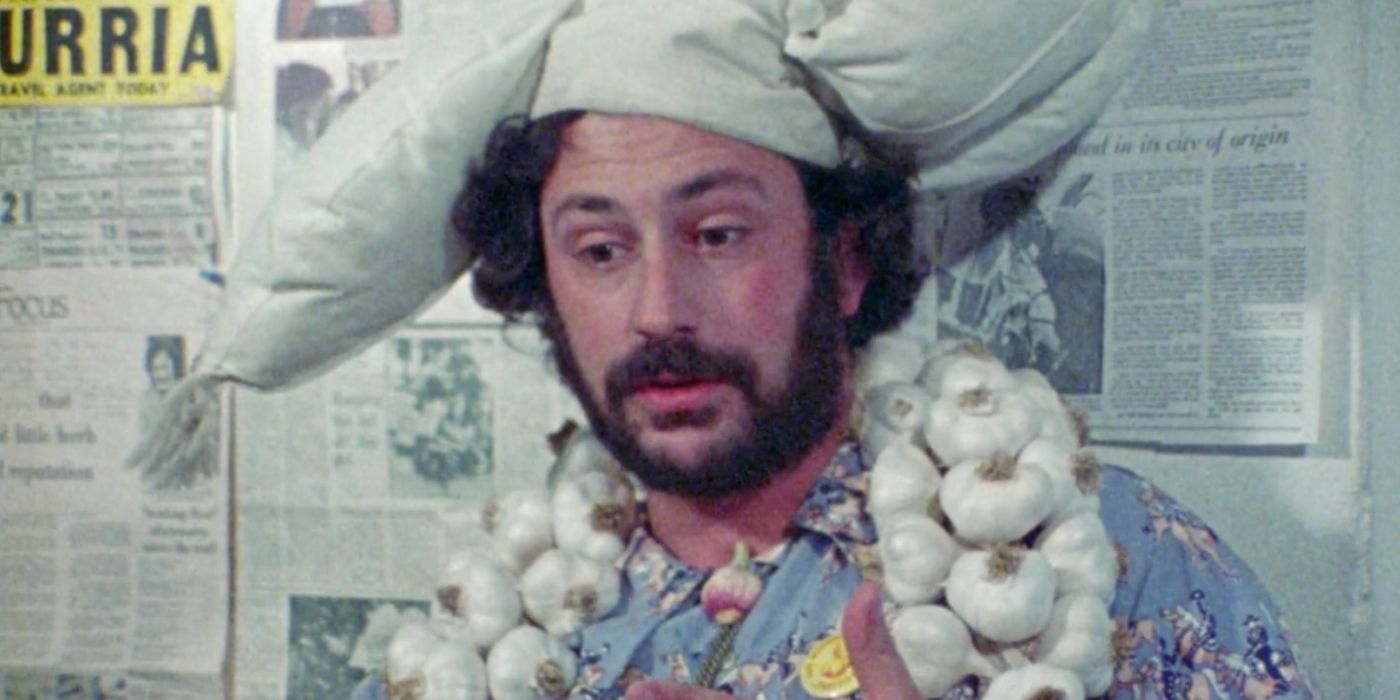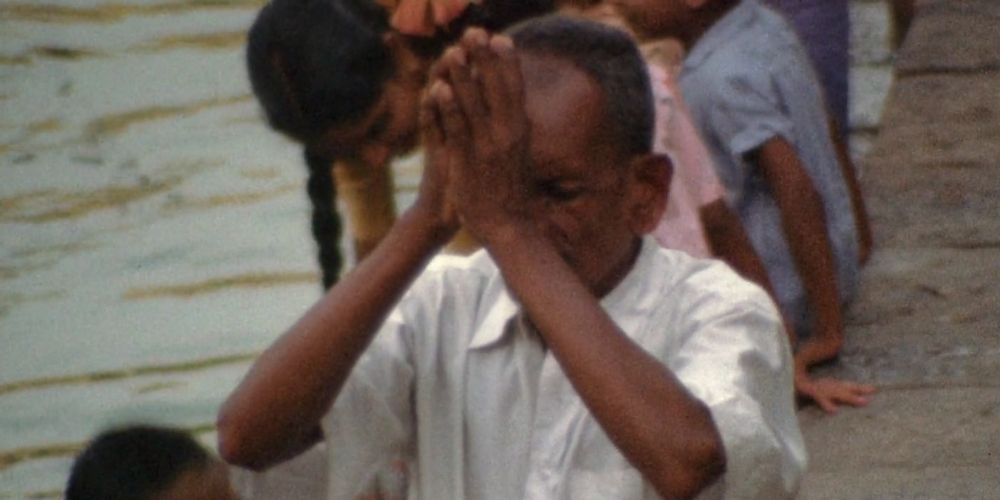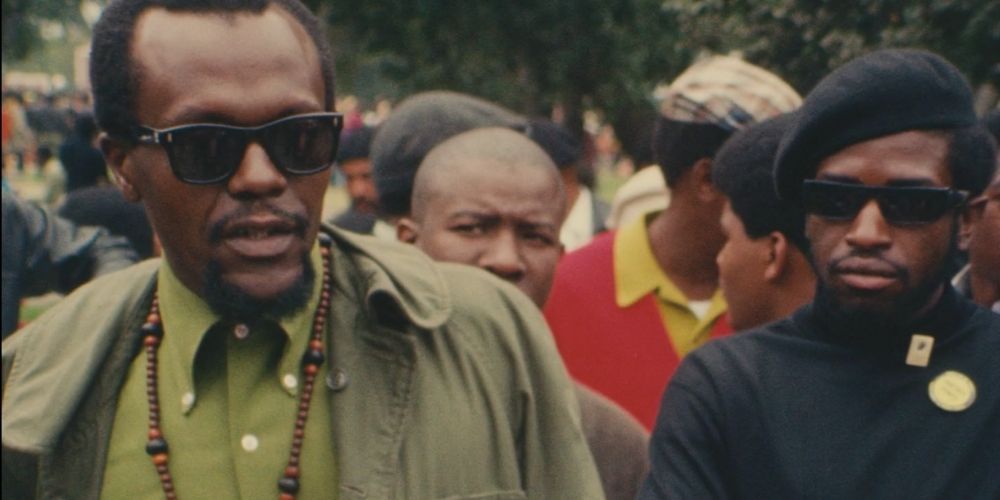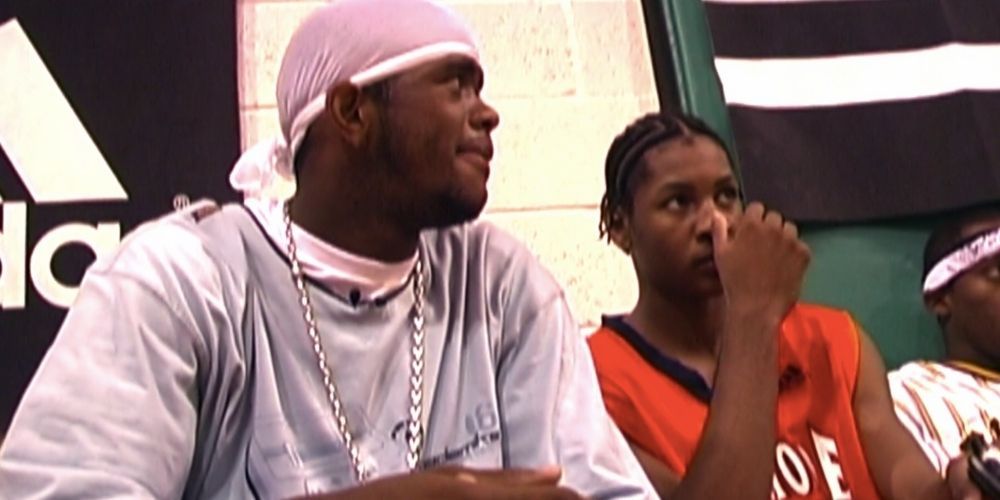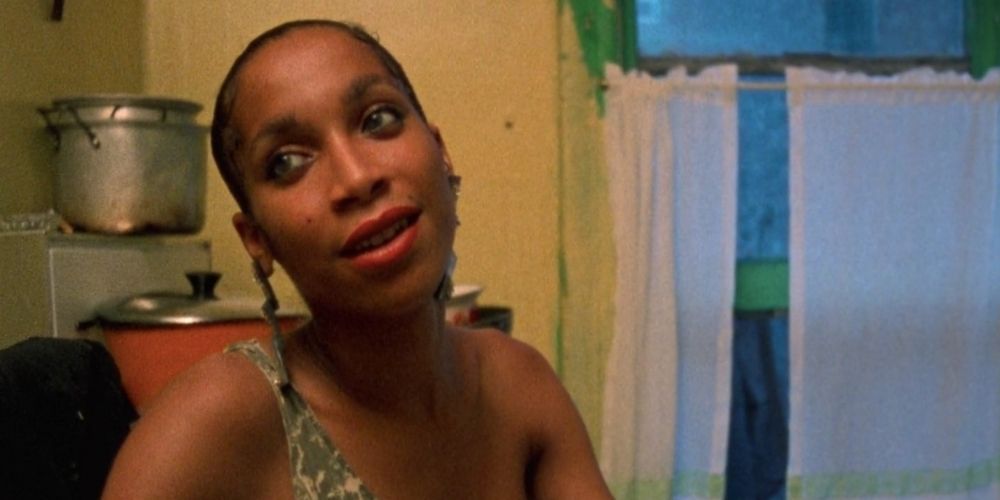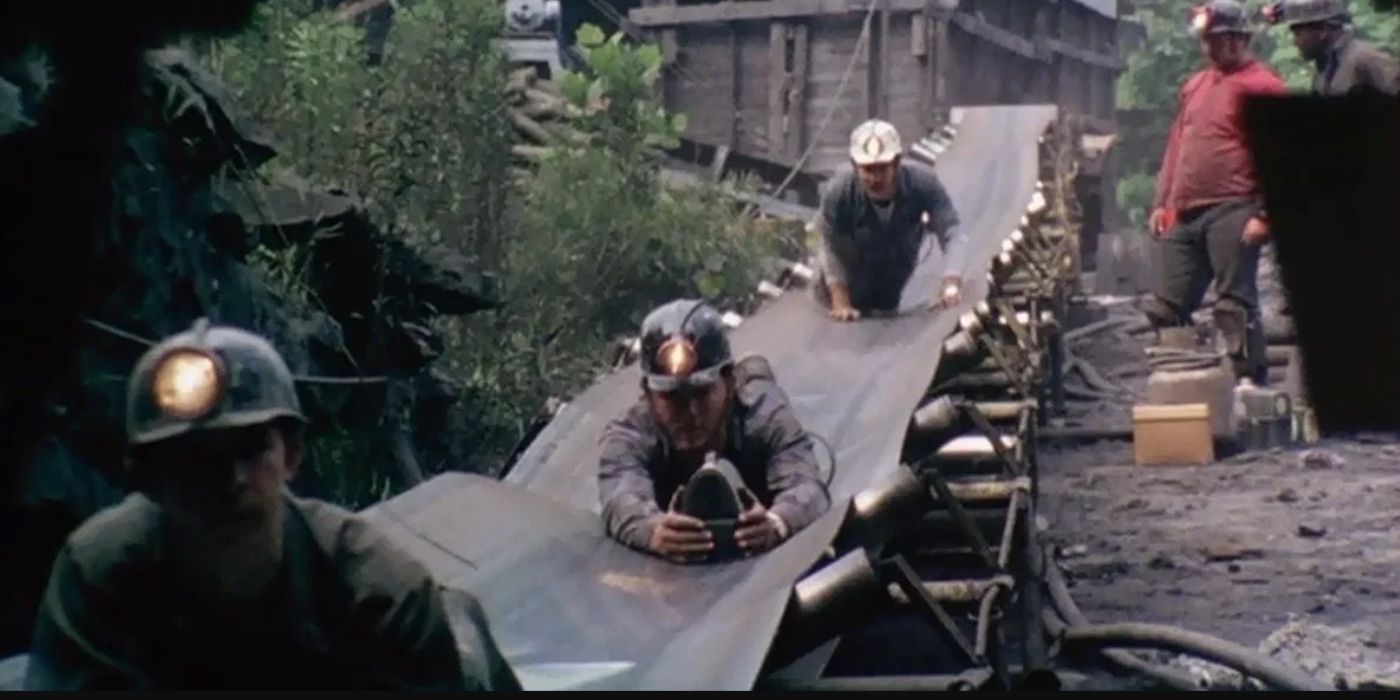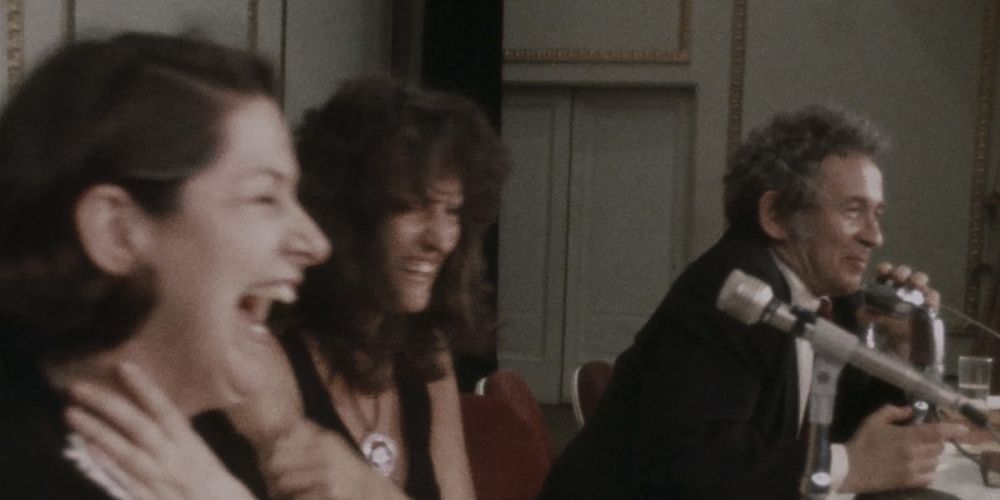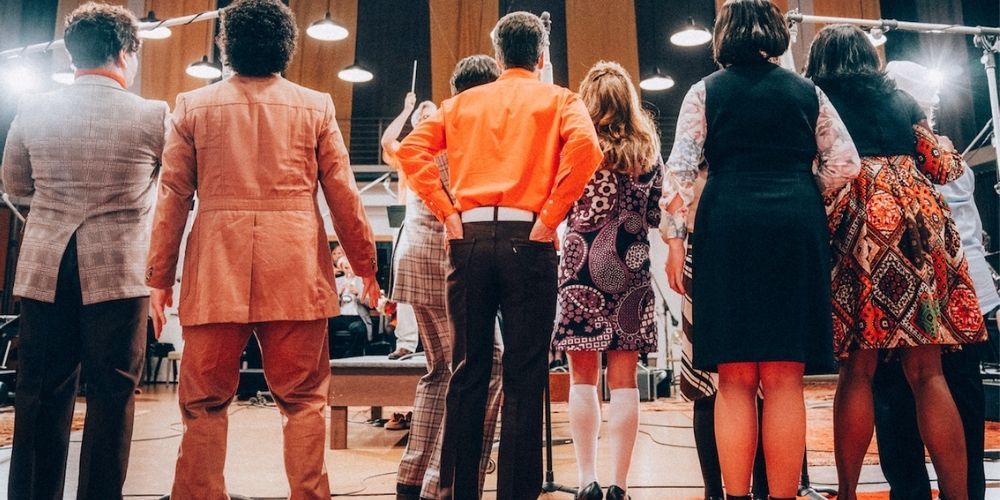The subscription-based streaming service available with Criterion Channel features a rotating selection of modern, historic, domestic, and worldly films — all sharing a collective, singular critical appeal — and among them are tons of enthralling docs. From more obscure gems about odd subjects like garlic, to vast, career-defining works from iconic directors, the collection is never short of originality and insight.
Exploring the range of critically acclaimed documentaries, and those that seemed to have snuck under the radar (for the most part) is a great introduction to Criterion's fantastic curation. It's also eye-opening to look at the vast world of documentaries from decades passed, which lack similar representation on platforms like Netflix and Hulu.
Garlic Is As Good As Ten Mothers (Tomatometer Unavailable, 75% Audience Score)
The simple focus of Les Blank's one-of-a-kind film Garlic Is As Good As Ten Mothers serves a valuable lesson in assessing the scope of interesting nonfiction. With variety and zero judgment, Blank takes his camera through a community of passionate garlic enthusiasts in this memorable movie available in a collection of his work streaming now on the Criterion Channel.
The medley of personalities featured in the film ranges from restaurateurs to barbecue legends, to Chinese restaurant stars of 1970s San Francisco. In between, viewers meet a belly dancer, food writer, an organic farmer, an Irish garlic eater, Werner Herzog to weigh in on Nosferatu and vampire-garlic relations, and Kathleen Bendel, also known as the Garlic Queen.
Phantom India (Tomatometer Unavailable, 98% Audience Score)
An undeniable gem among the many well-curated Criterion selects, Phantom India (L'Inde fantôme: Reflexions sur un voyage) is a seven-part documentary mini-series about India. Released in 1969 to air on BBC, the massive undertaking by celebrated French documentarian Louis Malle was shot on his dime with a two-person crew just a year prior to its release.
Episode themes vary and are well represented by titles such as, "Things Seen In Madras," "On The Fringes Of Indian Society," and "Bombay: The Future India." The film is regarded as a groundbreaking masterpiece, which Malle famously regards as his most personal.
Black Panthers (Tomatometer Unavailable, 89% Audience Score)
The masterful observational skills of the iconic Agnés Varda settles down on a demonstration in Oakland circa 1968. The Black Panther Party organized the event to protest the arrest of its co-founder Huey P. Newton. With appearances and insights from Newton himself, and interviews with other activists, as well as raw exposure to the atmosphere, the short, half-hour film resonates with meaning.
Black Panthers also offers a platform for revolutionary minds exploring topics of public safety and equality that are still at the center of protests and fights for the freedoms of the disenfranchised today. The recording is a standout in Varda's celebrated collection of work, and a valuable historical record for all.
Lenny Cooke (82%)
An easy depiction of Lenny Cooke is to call it the Safdie Brothers' Hoop Dreams, and there are a lot of resemblances between the two pictures. The only feature-length documentary made by the beloved directing team chronicles the story of a high-school basketball star trying to turn pro with the greatest of expectations.
Cooke came up in a class that featured LeBron James and Carmelo Anthony among several other future NBA icons. In an awkward situation, the much-hyped recruit took a year off before the first NBA Draft that allowed high school players to jump right to the league, a development that has since been changed back to generally requiring at least a year of college play. The gap he fell into shines a light on a tough system, and one talent who got lost in it.
Paris Is Burning (98%)
This gripping film offers an up-close look at the roots of voguing, and New York City's influential and vibrant Black and Latinx Harlem drag-ball scene over the course of seven years in the '80s. The direction is by Jennie Livingston, and the movie features a lot of voguers, trans women, and drag queens sharing their souls with dress and performance, as well as their hardships with tales of poverty, disease, and persecution.
Paris Is Burning is rife with an ironic sort of American inspiration. Watching this community of flop-houses filled by earnest young people thrown out of their homes come together and celebrate each other in style, in remarkable style, is uplifting. And then it's saddening, because it forces the viewer to question why these electric voguers and queens were pushed to the brink of society in the first place.
Cameraperson (99%)
Cameraperson sources the fascinating and beautiful career of cinematographer Kirsten Johnson. The collage-style introduction to her work through unused footage that she sat with for years until the film's 2016 release is fluid and inspired by the will of the visuals and emotions. The source material comes from a number of riveting documentaries like The Edge Of Joy, CitizenFour, and Ladies First.
The humanity portrayed in Cameraperson is so inclusive and empathetic. From survivors of genocide, to an angry boxer looking for his mother, to a brand-new baby struggling to breathe — featuring locations from Bosnia, to Darfur, and the Bronx — this movie paints a broad tapestry, and Kirsten Johnson gave viewers a great gift by putting it together. It's also a touching, and unsurprisingly subtle glimpse into the people we all forget are there, the ones who hold up the picture to which we glue our eyes.
Harlan County, USA (100%)
This debut effort from director Barbara Kopple earned her an Academy Award for Best Documentary Feature in 1976, and deservedly so. The intimate look at the coal miners, their families, and the culture of the unions who are the main subject of the film executes an ideal documentary effect — observing people in an honest, detailed way, and in the process expose a larger systemic problem for the audience to better understand.
A riveting masterclass in union politics, the plagued history of the Kentucky coal miner and similar workers around the country, and on capitalism and the depths of stubbornness and anger companies will endure to save a buck. Not a bad introduction to cinema for Kopple, who's gone on to make a lot more eye-opening films, including another strike-union-labor film named American Dream.
Town Bloody Hall (100%)
Rich with the live-event energy of a concert film, Town Bloody Hall is an intense look at gender politics that is emotional, hilarious, and insightful. The film's sole event was documented by D.A. Pennebaker and Chris Hegedus, and it featured a debate between novelist Norman Mailer, and leading feminist intellectuals such as Germaine Greer, Diana Trilling, and Jill Johnston.
Mailer brashly and with full use of his enormous vocabulary offers piercing takes on ideas that are very personal to the female leaders and audience he moderates. The women deliver a medley of dialogues, lectures, and artistic performances that offer a glimpse at the complexity of the feminist movement, its own inner battles, and these representatives' mutual ability to go toe-to-toe with male moderators.
Original Cast Album Company (100%)
Another D.A. Pennebaker documentary streaming on Criterion Channel, and another intense chronicle of heated exchange in a broad, storied New York City location — Original Cast Album Company is a fascinating peek behind the curtain of one of Broadway's most central figures.
The movie centers in on the Sunday following the premiere of Stephen Sondheim's 1970 musical "Company," when the cast met to record the musical's album. The ensuing footage offers a striking record of the intensity and profound scrutiny that everyone went through to complete the project. It's long, exhausting, and puts a new perspective on the smiley ballads that make Sondheim such a household name.
Festival (100%)
Festival is the original American festival film, and it's rife with performances that are captured in crisp black and white with stunning audio quality. Among the brilliant acts who appear in this chronicling of the Newport Folk Festival from 1963 - 1966, there's a stunning opening number from Peter, Paul, & Mary — who return for more songs throughout — that leads to appearances by the Staple Singers, Johnny Cash, and Bob Dylan among many others.
Interwoven with the films of the musical performances, the film offers fantastic asides with the youth who attended the festival, chronicling shifting attitudes with the coalescence of rock, blues, and jazz on the folk scene. Setting the precedent for similar masterpiece documentaries like Woodstock and Monterey Pop, Festival is as re-watchable as any film, and a must for music lovers of all persuasions.

